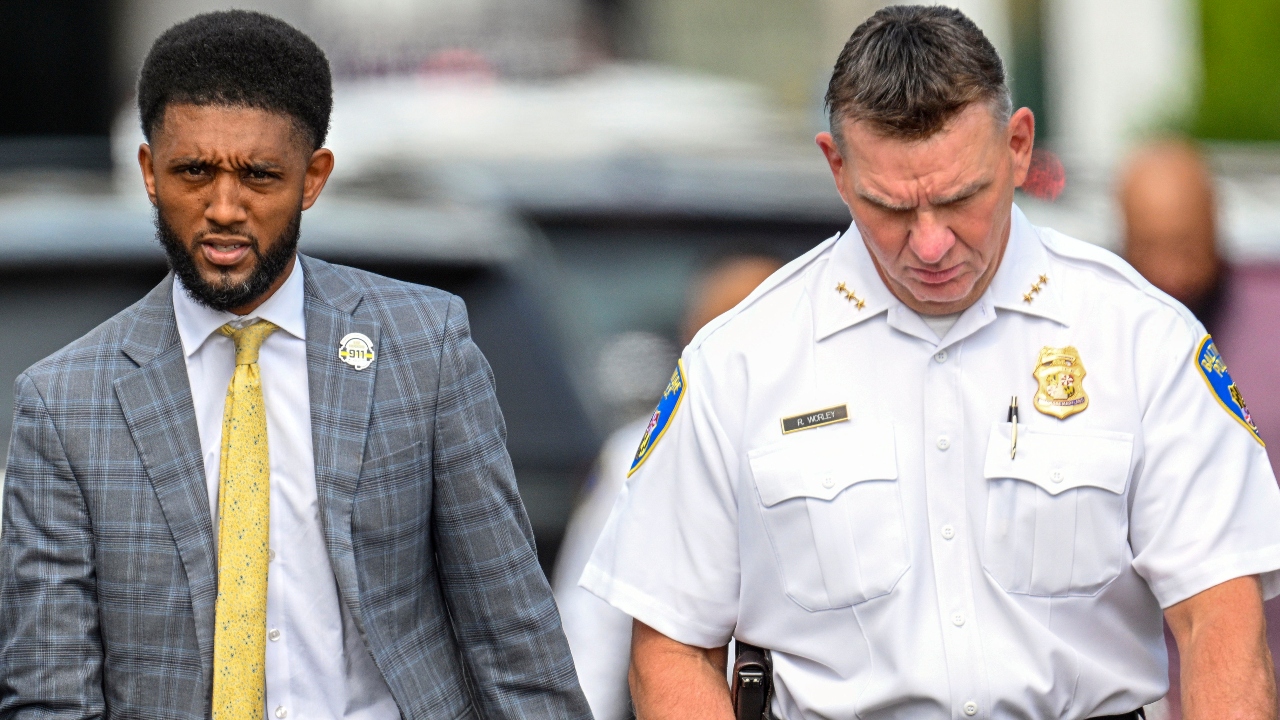We bring news that matters to your inbox, to help you stay informed and entertained.
Terms of Use and Privacy Policy Agreement
WELCOME TO THE FAMILY! Please check your email for confirmation from us.
Crime
The Baltimore Police Department has completed its first step toward fulfilling a series of reforms ordered by the court — including changes to how it transports people in custody — after the 2015 death of Freddie Gray.
BALTIMORE (AP) — Officials said Wednesday that the Baltimore Police Department has completed its first step toward fulfilling a series of court-ordered reforms, including changes to how it transports people in custody, which was what initially landed the department under federal oversight following the 2015 death of Freddie Gray.
Gray died from spinal injuries after officers loaded the handcuffed man into a police van and transported him without a seatbelt. His death ignited widespread calls for police reform in Baltimore and led the U.S. Department of Justice to open an investigation into the agency. The probe uncovered a pattern of unconstitutional policing practices that especially affected Black residents. As a result of those findings, the department entered into a consent decree with federal prosecutors in 2017 that outlines a series of mandated reform measures.
Prosecutors acknowledged the department’s progress in a joint motion filed Tuesday, saying the agency had complied with two sections of the decree. Officials called it a “major milestone.”
“BPD has transformed its policies and procedures related to transportation … so that today, the department can meet the standards required for the safe transportation of persons in custody,” the city’s acting solicitor, Ebony Thompson, said during a Wednesday news conference.
The other section of the decree the department has complied with focuses on officer safety and wellness. The agency boasts a robust peer support program for officers dealing with trauma. It also implemented an early intervention system to address officer behavior and a training program that teaches officers emotional regulation and the basics of brain science.
Police Commissioner Richard Worley said the changes demonstrate a “major shift in the culture of our department.” He said they’re especially significant because the department has simultaneously seen a decrease in violent crime across Baltimore. The city recently celebrated a 20% drop in homicides last year.
“Our reform initiatives are not only helping us win back our community, but they are also the roadmap to sustained reductions in gun violence,” Worley said.
Jared Alexander
Ashlee Banks
TheGrio Staff
Monique Judge
Gerren Keith Gaynor
Kay Wicker
TheGrio Staff
TheGrio Lifestyle
The department has achieved full compliance with 25% of the paragraphs contained in the consent decree, while another 60% have been deemed to be on track to compliance, officials said. The designations come from a court-appointed team of experts tasked with evaluating the department’s progress.
Evaluations pertaining to misconduct investigations and use of force are expected in the coming months, officials said.
Worley, who assumed leadership of the department last year, said he hopes to achieve compliance with the entire consent decree by the end of his three-year contract.
“Reform and accountability go hand in hand with law enforcement productivity,” said Baltimore Mayor Brandon Scott. “Let me be very clear, the only way we’re able to improve public safety is by doing it the right way.”
Never miss a beat: Get our daily stories straight to your inbox with theGrio’s newsletter.
STREAM FREE
MOVIES, LIFESTYLE
AND NEWS CONTENT
ON OUR NEW APP

